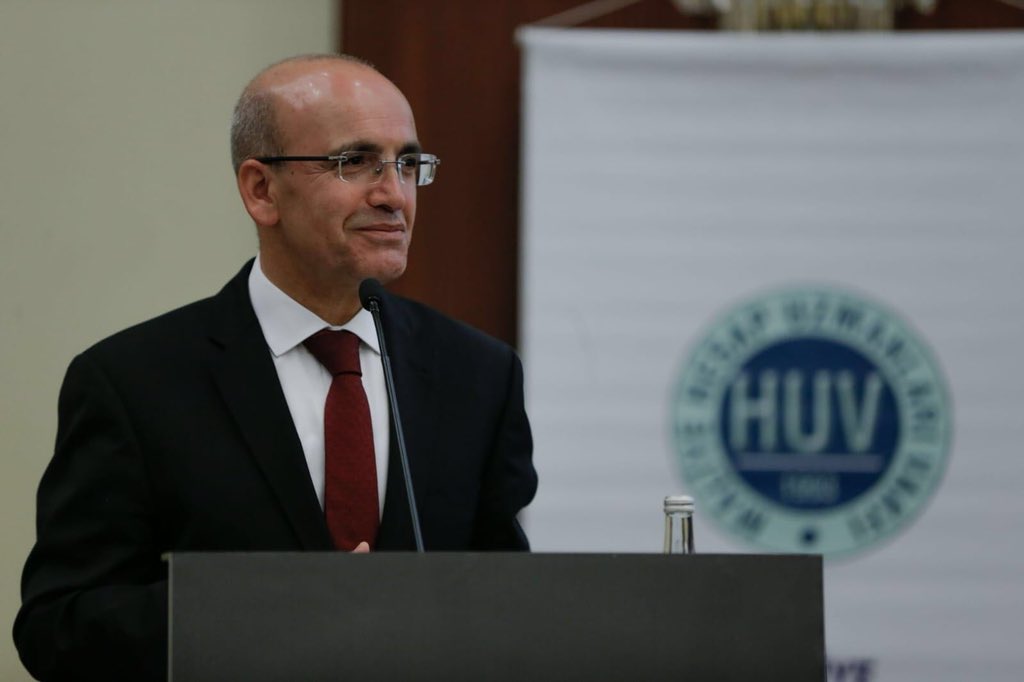Turkish Finance Minister Mehmet Şimşek on Friday denied rumors of his resignation, dismissing the reports as unfounded and harmful.
“I did not resign. The scenarios being circulated are not true,” Şimşek posted on X. He also said his team is committed to improving Turkey’s financial stability.
Anlaşılan yapılan resmi açıklamalar yetmemiş, bir de buradan yazayım!
İstifa etmedim. Dolaşıma koyulan senaryolar doğru değildir.
– Ekonomi yönetimi bir ekip ruhuyla çalışıyor. Aldığımız büyük ve zor sorumluluğun farkındayız. Bu sorumluluğun bilinciyle her gün daha iyiye…
— Mehmet Simsek (@memetsimsek) August 23, 2024
Şimşek’s denial follows a social media post by Cemal Enginyurt, a lawmaker from the opposition Democratic Party, who claimed Şimşek had resigned.
Following the denial of the resignation rumors, the Capital Markets Board (SPK) announced that it had launched an investigation into social media accounts that allegedly misled investors and caused financial harm by spreading false information about Şimşek’s resignation. Enginyurt criticized the SPK’s announcement and called for a broader investigation, naming several individuals he suggested should also be investigated for financial misconduct.
The Ministry of Treasury and Finance had previously refuted similar allegations earlier this week.
Reports appeared in the Turkish media on Wednesday claiming that Şimşek, a former Merrill Lynch economist who was appointed finance minister by President Recep Tayyip Erdoğan following the 2023 general election, attempted to resign two weeks ago but was stopped by Yılmaz.
Şimşek highlighted the progress made under the government’s economic reform program, citing improvements in the current account deficit and the central bank reserves. He stressed that economic stability was the primary goal, with significant strides being made towards reducing inflation.
The finance minister also expressed gratitude for Erdoğan’s support during this challenging period.
The rumors come amid reports of Şimşek’s alleged disagreements with the government’s taxation policies, which have been accused of favoring wealthy corporations at the expense of ordinary citizens. Vice President Cevdet Yılmaz had earlier dismissed these claims.
The government’s anti-disinformation center also issued a statement, urging citizens not to believe what they called “deliberately circulated disinformation aimed at creating market instability.”
Last month the Finance Ministry admitted that certain large corporations have paid no taxes, sparking public outrage amid a deepening economic crisis and a high cost of living in the country.
The ministry confirmed that some construction firms, despite securing lucrative government contracts worth billions of dollars, have not paid any taxes, attributing this to existing tax exemptions and deductions that it now plans to eliminate.
The ministry promised to implement policy changes to ensure these businesses contribute their fair share in the future.
Cevdet Akay, a lawmaker from the main opposition Republican People’s Party (CHP), announced last month, based on data from the Turkish Revenue Administration, that the government wrote off TL 7.5 billion ($227 million) in tax liabilities and unpaid tax penalties, primarily for wealthy, pro-government companies, between 2013 and 2023.
Akay announced that the government had forgiven TL 2.5 billion in unpaid taxes and penalties totaling TL 4.9 billion in the last 10 years, accusing it of unfairly penalizing everyday people who pay their taxes while forgiving the tax indebtedness of the rich.
